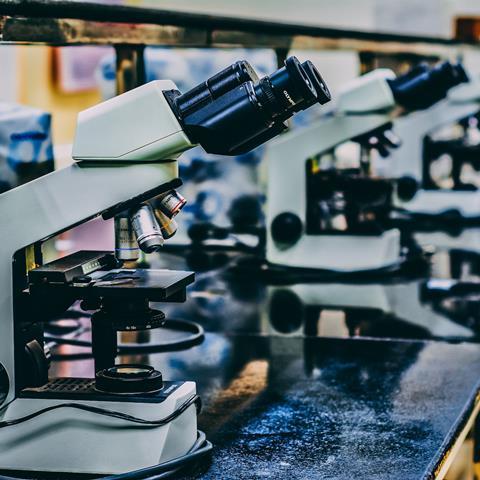In 2021, I decided to step down from managerial posts in pathology and return to bench work as a locum biomedical scientist (BMS) in microbiology as I headed towards retirement.
Why locum work?
This was the second time I had worked as a locum BMS; the previous stint was in 1996 when for two years after returning to the UK from Pakistan I traversed the country, working in Canterbury, Salisbury, Stoke Mandeville, Frimley Park Hospital (FPH) and St George’s Hospital (Tooting). Apart from the obvious separation from my wife, I thoroughly enjoyed working in different laboratories.
So, I thought it would be an ideal situation to be a locum again, as I wasn’t quite ready to hang up my white coat and fully retire. This time, though, I asked to be located closer to home and was absolutely delighted to find a position at FPH, not 15 minutes from where I live and somewhere that I had worked previously. After a telephone call, the pathology management team asked me to go in for a brief interview to make sure there was a ‘good fit’ between me and the laboratory. During the laboratory tour I was pleasantly surprised to find several staff with whom I had worked nearly 20 years ago, and it was great to catch up. The difference this time was that they would be training me and not the other way around.
Before I could start work, however, there was a bit of documentation to complete. As this was a clinical laboratory, I had to ensure my Health and Care Professions Council (HCPC) registration was up to date, be in possession of a current Disclosure and Barring Service (DBS) certificate and be up to date with various vaccinations (hepatitis B and measles). The locum agency required me to complete several online modules for health and safety, and equality and diversity etc. All of these were straightforward and completed with a minimum of fuss; I was ready to start.
Starting work
The microbiology department at FPH is the hub site for several hospitals around the South East of England and it is busy so there is a lot of automation. You can imagine that the first day as the ‘new boy’ was a bit overwhelming and disorientating. You don’t know where anything is, who the people are and what your role is going to be. But one of the key aspects of being a locum is the ability to learn new techniques as the laboratory does expect you to become trained and useful reasonably quickly. I was assigned to the urine section and by the end of the first week I had been trained and signed off as competent to use the Mast Uri System and the Beckman Coulter Iris; when the laboratory is processing upwards of 1000 urines a day it is not feasible to do manual microscopy and culture on all the samples. The other analyser that was new to me was the Bruker MALDI-ToF Biotyper (mass spectrometry) for the identification of bacterial isolates when following up cultures. No more waiting overnight to find out the identification of an isolate – now we are able to get the results within an hour. This allows decisions to made about the best antibiotic profile to be made promptly, saving 24 hours on the reporting, which is better for the patient.
After a while, everything becomes routine, you start to remember people’s names, where to put the rubbish bins and you can work safely on your own. I have also worked several Saturdays when they have been short-staffed and there have been several lunchtime lectures and after-hours social events, which have been quite entertaining.
Would I recommend life as a locum?
Being a locum BMS does not suit everyone – there is always the uncertainty of not knowing how long a contract will last or where the next post will be. On the positive side, however, you get to visit interesting laboratories around the country and learn new techniques. A colleague managed to secure a BMS post in the Channel Islands over the summer season. As they enjoyed all types of water sports (especially windsurfing), this was an ideal post and the hospital even provided accommodation. What a way to spend a summer!
But as a locum you should remember:
- · Chose a good locum agency. They will try and find posts that will suit your lifestyle and area of expertise, and ensure that your documentation is kept up to date.
- · Make sure you have the relevant certificates and documentation applicable for the post.
- · Be flexible, sociable and willing to learn.
- · Be willing to relocate at short notice.
I would like to thank Marcial Navarro and all the microbiology staff at FPH for the support during my training.










No comments yet